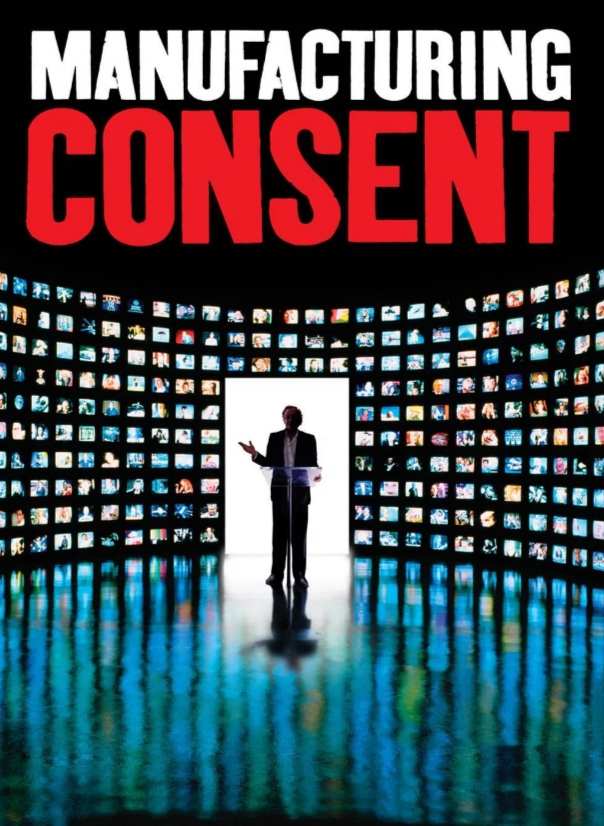
As an important theory of media critique, manufacturing consent reveals how the media, under the influence of capital, power, and ideology, which guides public opinion (Fedirko, 2022). Manufacturing consent forms support for specific policies and political agendas (Ghosh, 2022). The theory emphasizes that the media is not a neutral disseminator of information but rather part of the political and economic structure(MacLeod and Chomsky, 2019). With the development of social media, algorithmic recommendations, and platform capitalism, the mechanisms of manufacturing consent have not weakened in modern society. On the contrary, manufacturing consent influences people’s lives in contemporary media through more subtle and fragmented means.

Chomsky and Herman (2021) proposed that the media filters information through “five filters,” including media ownership structure, advertiser interests, reliance on news sources, negative reactions (flak), and dominant ideology (Herman and Chomsky,2021). In the Russia-Ukraine conflict, many Western media outlets employed a highly unified narrative framework: Russia as the aggressor and Ukraine as the heroic resister. While this framework had a factual basis, the media downplayed or even ignored battlefield news unfavorable to Ukraine or analyses of the possibility of negotiations. For example, some Western platforms blocked or restricted Russian media accounts, limiting the public’s access to a single perspective. This selective reporting fostered a “single understanding” of the conflict, thereby supporting politicians’ military aid policies. This can be considered a typical mechanism for creating consent, shaping attitudes through information filtering rather than explicit propaganda.
The Influence of Manipulating Consent
As media constantly filters information, the public struggles to access diverse perspectives, narrowing the space for public discussion (Fedirko,2022). In particular, the automatic filtering mechanisms of social media platforms on sensitive topics superficialize discussions of political and international issues. Furthermore, algorithms reinforce existing user opinions, further solidifying disagreements. Political discussions become increasingly emotional and moralistic, rather than based on facts and reason. This polarization weakens the capacity for dialogue in democratic societies. It is noteworthy that the media, through narrative choices, visual design, and emotional tagging, is dictating public thought. For example, the persistent, frenzied reporting of trending events on social media diverts public attention from structural issues, trivializing social discussion.
Conclusion
In the modern media landscape, the creation of consent has expanded from traditional news media to algorithm-driven digital platforms. It no longer relies on coercive propaganda, but rather shapes public beliefs and judgments through more subtle filtering and recommendation mechanisms. While these mechanisms can maintain social order, they also lead to cognitive biases and a weakening of public discourse. Therefore, understanding the mechanisms of consent creation is crucial for maintaining media literacy, upholding public rationality, and preserving a diverse information space in modern society.
References
Fedirko, T. (2022). In the shadow of power: ethics and material interest in Ukrainian political reporting. L’homme, 243244(3), 61-94.
Ghosh, B. (2022). Politics of manufacturing consent in a post-truth society. Journal of Developing Societies, 38(1), 7-26.
Herman, E. S., and Chomsky, N. (2021). Manufacturing consent. In Power and inequality (pp. 198-206). Routledge.
MacLeod, A., and Chomsky, N. (2019). Still manufacturing consent: An interview with Noam Chomsky. In Propaganda in the information age (pp. 12-22). Routledge.

